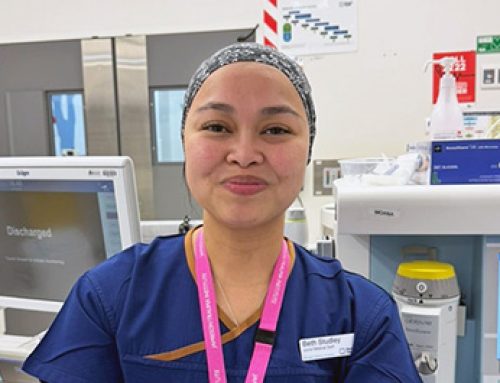Celebrating Ten Years of Leading Research with Real World Impact
Since its founding ten years ago AusHSI has embodied QUT’s Real World principles, notably the value of partnership to effect change in Australian health services. AusHSI’s research has partnered on numerous projects with practical benefits for clinicians, hospitals, aged care, and health consumers.
 The small selection of past and present projects below stand out as testament to the diverse nature of AusHSI’s research and impact areas:
The small selection of past and present projects below stand out as testament to the diverse nature of AusHSI’s research and impact areas:
- AusHSI led the five year Centre of Research Excellence in Reducing Healthcare Associated Infections (CRE-RHAI), partnering with organisations including the Australian Commission on Safety and Quality in Healthcare. The CRE generated a substantial body of new knowledge and strategies to reduce healthcare associated infections.
- Building on a successful pilot project of the CRE-RHAI, AusHSI led the NHRMC Partnership Grant Researching Approaches to Cleaning in Hospitals (REACH). This project evaluated a new bundle approach to hospital cleaning and showed it was an effective and cost-effective way to reduce the transmission of healthcare associated infections in hospitals. These results are now informing national hospital cleaning policy.
- With the Gold Coast and Metro North Hospital and Health Services, AusHSI has completed a trial to support clinicians to identify and respond to older patients at risk of receiving non-beneficial treatment. The project, called Intervention for Appropriate Care and Treatment (InterACT) supports appropriate and patient-centred treatment decisions, providing better care outcomes for patients and families, and reduces unnecessary costs to the health service.
- With Metro South Hospital and Health Service, AusHSI is delivering a Digital Health project to understand the implementation and use of digital information. By determining how clinical informatics solutions and digital health information is being used to support patient care, this project will inform the implementation, effectiveness, and cost-effectiveness of future clinical informatics initiatives.
- Funded by a fellowship and grant from the Heart Foundation, and working with national and international partners (including Royal Brisbane and Women’s Hospital, Griffith University, Monash University, University of Technology Sydney, and The University of Sheffield), AusHSI developed a heart-disease specific instrument for patients to report their preferences, and the state of their health via an app. This instrument measures which treatments offer the best outcomes for patients and are the best value for money for health services.
- With Metro North Hospital and Health Service, AusHSI is analysing data and developing health economic modelling of selected new Interventional Oncology procedures. The project provides Metro North with evidence these new cancer treatments are cost effective, and also helps inform an activity-based funding model to reimburse hospitals for the new procedures
- AusHSI worked with the Queensland Government’s Integrated Care Innovation Fund (ICIF) (including Queensland Health, 16 Hospital and Health Services and most Primary Health Networks across Queensland) to evaluate 23 trial models of integrated care. The outcomes of AusHSI’s implementation and cost effectiveness evaluations helped inform what changes were necessary to better integrate care for patients.
To find out more about our Research Strengths, Program Areas and Projects, please visit our Research page.







